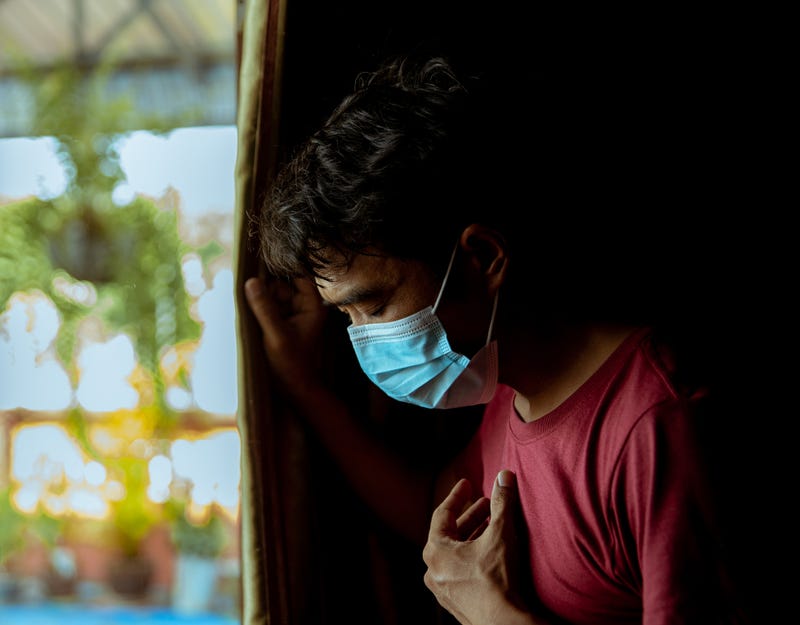
SAN FRANCISCO (KCBS RADIO) – COVID-19 has been a part of our lives for more than two years now.
For more, stream KCBS Radio now.
After all this time, elements of the virus are still somewhat of a mystery, including the nature of long COVID-19 continues to be studied by experts, as well as treatments like Paxlovid and its effectiveness against long-lasting symptoms of this virus.
"This has been a continual challenge for us," said Dr. Daniel Griffin, infectious disease expert and an instructor in Clinical Medicine and an associate research scientist in the Department of Biochemistry and Molecular Biophysics at Columbia University on KCBS Radio's "Ask an Expert" on Friday.
But the efforts so far have been substantial. "There's been a pretty tremendous commitment as far as financing, as far as people working on this," he told KCBS Radio's Eric Thomas and Melissa Culross.
This includes the RECOVER initiative being funded by the National Institutes of Health to study the long-term effects of COVID-19.
"We're not where we want to be, we're not going as fast as we want to be but we are making progress," said Griffin.
This has led to scientists and health experts having a better understanding of some of the traits of long COVID-19, such as how not every patient who presents long-term symptoms is the same.
There are subtypes, where patients are dealing with a specific set of symptoms, like cardiovascular issues with blood pressure and heart rate, or neurological with migraines and headaches.
"Another subset which is this post-exertional malaise, this debilitating fatigue," he said. "This is not, 'I'm a little tired,' this is after an hour or two, 'I'm done.'"
At this point, it's clear that the symptoms are very much dictated by the individual, and the individual immune system response to the virus.
Reinfection can happen, and it can in some cases make patients' symptoms worse, said Griffin. "Some individuals may have done well the first time but boy, then they get a second infection and then they felt long COVID-19 after the second infection," he said.
The time frame for determining if someone has long COVID-19 is eight weeks after infection, whether they are still suffering from symptoms.
While long COVID-19 tends to being eight weeks after infection, it’s unclear when it might end.
"There's a gradual improvement by about a year out," he said. "We're seeing a significant number of people who are still sick at eight weeks, 12 weeks, improving."
But there are still people struggling two years out.
Although there is still a lot unknown, improved knowledge of subsets has helped medical professionals better understand what different treatments might actually help.
DOWNLOAD the Audacy App
SIGN UP and follow KCBS Radio
Facebook | Twitter | Instagram

